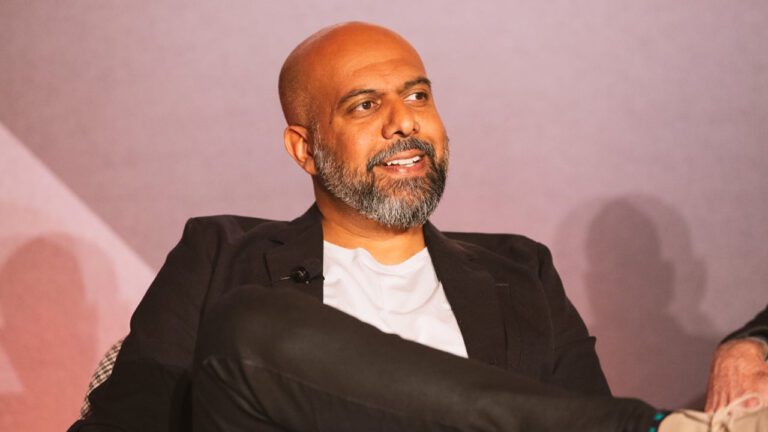At a time when the future of smartphones is debated in tech circles, British-American designer Imran Chaudhry’s San Francisco-based company Human has introduced a tiny AI pin that attaches magnetically to your clothes.
While Imran Chaudhri may not be a famous name, his extensive knowledge of several successful products stems from his lengthy tenure at Apple. Now, he’s back in action, challenging Apple and other smartphone makers with a $699 alternative—a smartphone that you can wear all day.
For Pakistanis, the unique aspect is his Pakistani name, Imran Chaudhri. However, one may wonder about Imran’s connection to Pakistan given that he was born in London.
Imran Chaudhry spent two decades at Apple, closely collaborating with Steve Jobs. His journey began as an intern in 1995, eventually leading him to become the design director of the company’s human interface group. Notably, he was part of a six-person team that designed the iconic
“This is so much more than devices just getting smaller or more powerful. This is the possibility of reimagining the human-technology relationship as we know it.” — @ImranChaudhri, @Humane cofounder.
Learn more about this groundbreaking technology here: https://t.co/iNvxbSmYUk pic.twitter.com/0GqAiR2reT
— TED Talks (@TEDTalks) May 9, 2023
iPhone.
Best known for his work on the original iPhone’s interaction and interface design, Chaudhry’s contributions extend to designing interfaces for the iPod, iPad, Apple Watch, and Apple TV. He holds credit on numerous patents, including the “slide to unlock” patent, and played a significant role in shaping the iPhone’s home screen.
The dynamics of Apple’s core design team began to shift in 2016 when Jony Ive stepped down from day-to-day management duties. According to an excerpt from Tripp Mickle’s book ‘After Steve: How Apple Became a Trillion-Dollar Company and Lost Its Soul,’ Chaudhry considered leaving Apple, expressing his intentions to Ive and Alan Dye a month before departing.
Quoting the Persian poet Rumi in an email to colleagues, Chaudhry said, “When you work with your soul, you feel happiness inside you. Sadly, rivers dry up, and when they do, you start something new.” With this, he referred to Apple’s situation post Steve Jobs’ death and under CEO Tim Cook.
Leaving Apple in 2018 to pursue entrepreneurial ambitions, Chaudhry co-founded Human with his wife Bethany Bongiorno and a former Apple employee crucial to iPhone, iPad, and Mac software development.
Despite keeping their projects secret, Chaudhry offered a glimpse of AI in a TED talk earlier this year. The AI Pin, devoid of a traditional display, features an array of cameras and sensors that render a visual interface on various surfaces. It can be clipped to clothing for functionalities like taking photos, sending texts, and hosting a powerful virtual assistant like ChatGPT.
The AI Pin will be available in the US starting November 16, priced at $699, with an additional $24 monthly rental for unlimited calling, texting, and data through T-Mobile.
Upon founding Human, Chaudhry brought on board numerous former Apple employees, constituting 50% of the current workforce. Notable hires include Ken Kosianda, the creator of the iPhone’s touchscreen keyboard, and Gary Schles, a member of Apple’s industrial design group from 2007 to 2019.
Imran Chaudhri’s startup, Human, has secured $230 million in funding so far, with OpenAI CEO Sam Altman among its investors, holding about 15% of the shares.
In an interview, Imran Chaudhri mentioned that his father had roots in both India and Pakistan, working in the Department of Electronics in Pakistan, where he played a pivotal role in bringing electricity to many villages. Imran himself was born in London, later acquiring British and American citizenship after moving to the United States.


































